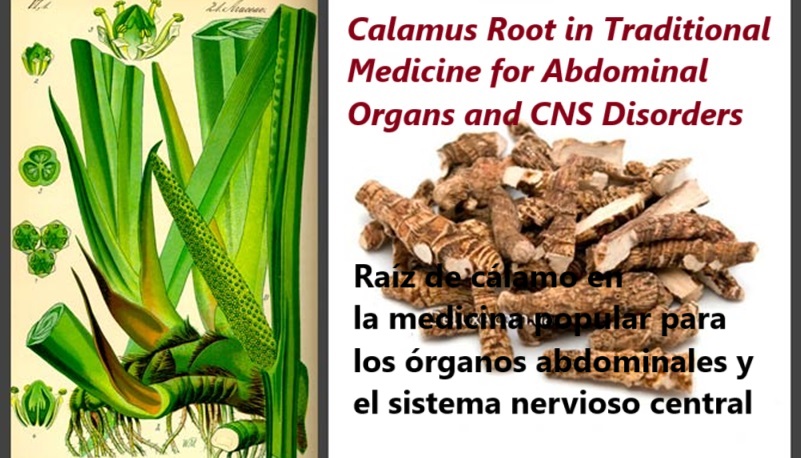The therapeutic effects of calamus are incredibly diverse. It exhibits anti-inflammatory, tonic, general strengthening, analgesic, antibacterial, antispasmodic, antipyretic, expectorant, choleretic, diuretic, vasodilatory, and wound-healing properties.
Traditional Usage of Calamus Root
In folk medicine, calamus root is the most widely used part of the plant. It is harvested from autumn to early winter when water levels in reservoirs decrease.
Calamus roots have a spicy, bitter taste and an aromatic smell. They contain acorin, a bitter aromatic substance that enhances taste receptor sensitivity and stimulates gastric juice secretion. Preparations of calamus not only boost appetite but also aid in treating gastrointestinal conditions such as chronic gastritis with low acidity, gastric and duodenal ulcers, diarrhea, heartburn, nausea, vomiting, flatulence, and intestinal disorders. Calamus is also used as an anthelmintic (anti-parasitic) agent.
Uses in Various Conditions
Calamus root is effective in treating lung diseases (bronchitis, pleurisy), kidney and gallstones, and serves as an excellent expectorant and blood pressure-lowering agent.
Since ancient times, marsh calamus has been used in mixtures with other medicinal plants for hair loss prevention and strengthening, as well as for baths to treat scrofula, diathesis, scabies, rickets, and neuroses.
In gynecology, calamus is used for secondary amenorrhea with ovarian dysfunction, pathological menopause, and reduced libido.
Preparations from Calamus Roots
- Juice
Traditional medicine utilizes calamus root juice to improve vision, hearing, and memory, as well as to combat smoking. - Decoction
A decoction of calamus roots is an excellent remedy for stomach diseases, ulcers, heartburn, flatulence, intestinal colic, diarrhea, and poisoning. When taken internally, it improves liver function and increases bile secretion.
It is also used for rinsing the mouth to eliminate bad breath, alleviate toothache, and treat oral inflammations and tonsillitis. Compresses from the decoction are applied to certain types of nail disorders. Washing hair with calamus root decoction strengthens it. The decoction is also consumed for typhoid, cholera, and flu as a disinfectant. It can be used for snake bites by applying compresses or drinking the decoction. - Infusion
Infusions of calamus leaves and roots treat liver diseases, gallbladder disorders, bile ducts, and act as an expectorant and antipyretic for lung tuberculosis, pneumonia, bronchitis, and asthma. They are also used to address fungal skin infections and spinal cord conditions associated with sensory loss. - Powder
Chewing small pieces of calamus root, taking its powder (a pinch), or drinking a decoction can improve memory, enhance libido, and alleviate CNS depression, neurasthenia, hysteria, and seizures. Chewing calamus roots also helps reduce cravings for smoking and eliminates bad breath.
Contraindications
- High gastric acidity
- Hypotension
- Acute kidney inflammation
- Avoid chewing large pieces of calamus root whole, as it may induce severe vomiting.







